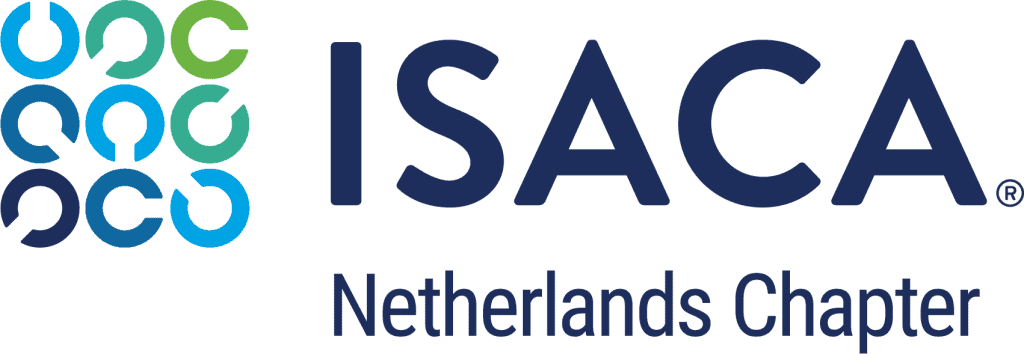Author: Ralu Elena Nistor-Lustermans MSc, CISA, CIA
I am an IT internal auditor and a coach, for many years I performed both activities (auditing and coaching) in parallel. While I held Internal Auditor roles, I was also part of companies coaching programmes where I acted as a career, transition and return to work coach.
Engaging in both activities made me realise I was using coaching skills as an auditor, and at times using my audit skills in coaching; although often I had to suppress some of my audit instincts, like giving advice, :), while coaching.
So, what do coaching and auditing have in common?
On a very high level they both aim to help the client (stakeholder) to get the best results and achieve their goals, while seizing opportunities and managing the risks/threats.
What are internal audit and IT Audit?
According to the Definition of Internal Auditing in The IIA’s International Professional Practices Framework (IPPF), internal auditing is an independent, objective assurance and consulting activity designed to add value and improve an organization’s operations.
An ISACA professional would define IT Auditing as identifying risks and appropriate controls to mitigate those risks to an acceptable level.
What is coaching?
ICF (International Coaching Federation) defines coaching as partnering with clients in a thought-provoking and creative process that inspires them to maximise their personal and professional potential. The process of coaching often unlocks previously untapped sources of imagination, productivity, and leadership.
In a coaching engagement the coach will support the coachee to reach his/her goals, by utilising the resources the coachee has in the best possible way and at times the coachee will be able to discover new perspectives and new ways of achieving results. A coach is an independent sound board, which will listen, observe, ask questions which trigger a new thinking process that leads to new perspectives and changes. It is not the coach task to give recommendations or advice, the solutions to coahee’s problems are mainly a result of the coachee’s new discovered perspectives.
In an audit engagement the auditors will evaluate the effectiveness of systems, processes and controls in place, and the results of the review will be several recommendations which aim to improve the mitigation of the identified risks.
Presenting the identified issues and related recommendations to the relevant stakeholders and getting their acceptance and agreement for implementation is often the most challenging part of an audit.
While as a coach I never had a challenge with the coachee implementing the changes, as they were a result of the client’s thinking and change process, and their benefits were well understood; as an auditor at times getting stakeholders to accept the recommendations was more a reason for debate and negotiation. Which made me wonder what would happen if auditors would adopt some of the coaching skills while delivering their audits.
Coaching skills for auditors
Here are some of the coaching skills, which could possibly be helpful for auditors:
- Active listening
Active listening means fully concentrating on what is being said, and how is being said, paying attention to body language and tonality of voice, changes in skin colour and physiology of the speaker (e.g. breathing rhythm). This is considered a very important skill for coaching, as the words used, the tone of voice, and the body language are always giving additional insights into the message the talker wants to share, or maybe does not want to share at that point.
- Holding the space
Holding the space refers to asking open questions and waiting for answers without filling in the moments of silence; it requires lots of patience and wisdom. No need to finish the other phrase, just wait and listen, take the time, they will get there to deliver their message in their own way; otherwise, you might never know what exactly they wanted to tell you.
The ability to actively listen and hold the space, would enable auditors to create better and more meaningful relationships with their stakeholders.
- Curiosity and asking open questions
Asking questions with an open end, like:
- “How do you think this issue should be handled….?”
- “What would be the best way to manage this risk in your view?”
Although auditors are the specialists, who know best practice and who are expected to come up with recommendations and advice, listening to how the auditees thinks issues could be resolved and risks could be mitigated, often gives additional insights into the best way forward for the specific scenario,as -anyway- there is no ‘one size fits all’ in best practice.
- Empathy and emotional intelligence
Empathy and emotional intelligence means: being aware, understanding and acting in accordance with the emotional status of the other. This is an important skill, especially when performing audits on culture, fraud, investigations, etc.
- Having a nonjudgmental attitude
Being able to ask open question, being curios, hold the space and listen; while suspending your own judgements allows for a deeper understanding of the issue, possibly getting to the root cause quicker and therefore coming up with the right recommendations sooner. There is a fine line between being nonjudgmental as an individual and having a professional judgment – which auditors are always required to have; here the focus is on suspending your personal thoughts while listening and being fully present in the conversation, so you can practice the skills mentioned above as well. Once your mind engages in judging you stop listening and there is a risk that you jump to conclusions too soon.
These are just some of the skills coaches need to master, and which -if adopted and developed by auditors as well- could help auditors become more impactful with their stakeholders. There is an increasing pressure on internal auditors and IT Auditors to provide more insightful information and add value to organisations, and I believe that developing some of these “soft skills” which coaches use successfully, could help auditors elevate their impact within the organisation.
Research on coaching skills for auditors
I am very keen to conduct a mini research and interview a couple of IT auditors regarding their views on developing some of the skills listed above, and where they think those skills might elevate their impact with their stakeholders?
If you want to participate to my research, please contact me at ralu@er-nl.com. In exchange of your time (max 60min interview) you will get some tips on how to enhance your impact as an IT auditor and the results of the research.
About the author

Ralu (Elena) Nistor-Lustermans is a seasoned Internal Auditor, Board member, Coach and Mentor and founder of ERNL, a business advisory and coaching consultancy. In the last two decades Ralu held various Internal Audit roles in well known international organisations (Deloitte in Italy, Smurfit Kappa in Ireland, Atos in France and Grant Thornton and Post Office UK the the UK) which gave her the opportunity to develop a deep interest in the impact of organisational culture and behaviours on results and performance. To pursue her interest in organizational culture and performance Ralu also trained in business coaching, NLP, applied neuroscience and positive psychology.


